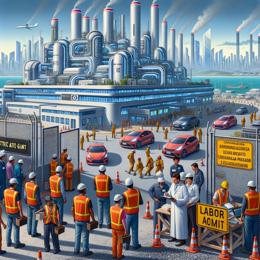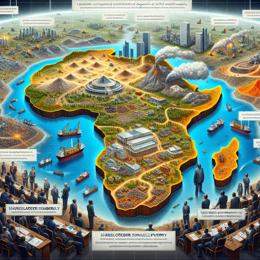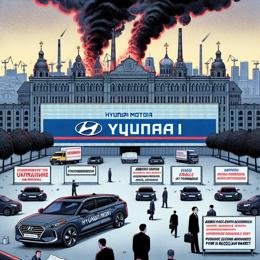Image created by AI
Mozambique's Unrest Impacts Global Supply Chains as Tesla Supplier Declares Force Majeure
Amidst rising political tensions and socio-economic disparities, Mozambique is currently experiencing severe unrest that began as election protest but has since escalated into violent confrontations affecting global supply chains. In the latest developments, the unrest has led to the declaration of force majeure by Syrah Resources, a key supplier of graphite to Tesla, signaling the extent to which international markets could be impacted.
The challenges began following the October 9 election, which opposition parties claimed was marred by voter fraud, including ballot-box stuffing and tally manipulation. The protests, spearheaded by charismatic opposition leader Venâncio Mondlane, have seen a tragic escalation to violence, with security forces reported to have killed scores of protestors. Mondlane, who has been leading protests via livestream from self-exile, plans to amplify his campaign with more protests slated for December 16. He has also called for a shutdown of all mines until January 15, potentially adding to the economic strife.
The consequences of these actions are far-reaching. For instance, Syrah Resources had been gearing up to start commercial deliveries to Tesla next year but now faces operational disruptions. This situation not only threatens Tesla's supply chain but also affects broader industry sectors including aluminum and chrome exports crucial to sub-Saharan Africa's economy. The halt in operations at Mozambique's largest brewery and threats to a $20 billion natural gas project underscore the growing economic impact.
Despite assurances from the ruling Frelimo party that the election was fair, the Constitutional Council is yet to resolve opposition challenges. The government's spokesman Edmundo Galiza Matos Jr has publicly called for Mondlane to return and engage in dialogue, stressing the necessity to avoid further destruction of the country.
Telecommunications have been instrumental in these protests, allowing Mondlane and his supporters to organize and vocalize their grievances broadly. Their message of demanding fair distribution of resources resonates strongly in a country where a significant portion of the population lives below the poverty line, compounded by high youth unemployment rates and severe climatic impacts like frequent droughts and tropical storms.
This unrest not only jeopardizes domestic stability but also presents significant risks for international businesses operating in or relying on Mozambique's mineral wealth, including vital components for emerging technologies such as electric vehicles. The uncertainty and potential for long-term disruption are concerns for stakeholders at all levels, from local workers and communities to global corporate clients like Tesla.
In response to the crisis, there have been calls from various quarters for targeted economic reforms and more inclusive governance practices that address the underlying issues of inequality and disenfranchisement. Meanwhile, economists like Roberto Tibana highlight the intertwined nature of socio-economic factors and political grievances driving the current unrest, calling attention to the urgent need for meaningful resolutions that go beyond temporary appeasements.
As Mozambique grapples with these challenges, the possible extensions of unrest could have profound implications not only locally but also on the global stage, particularly concerning international markets and future investment climates in emerging economies.






